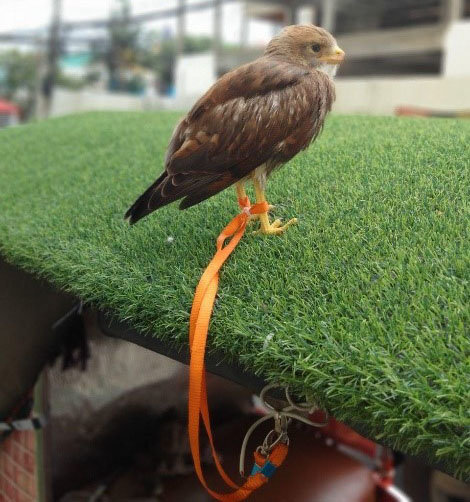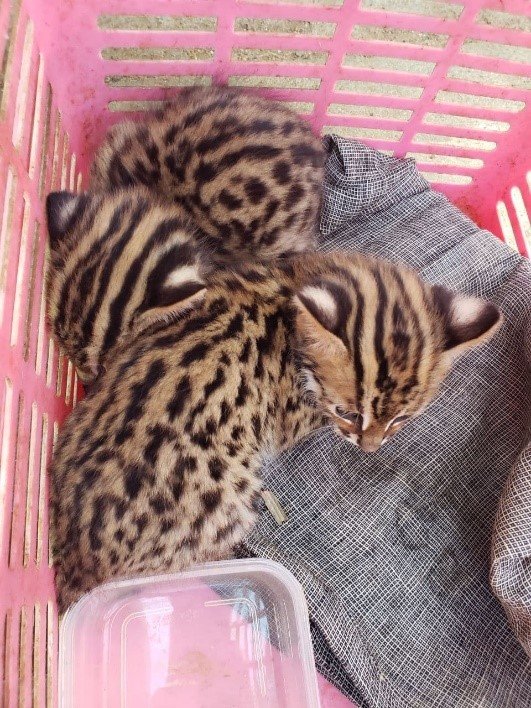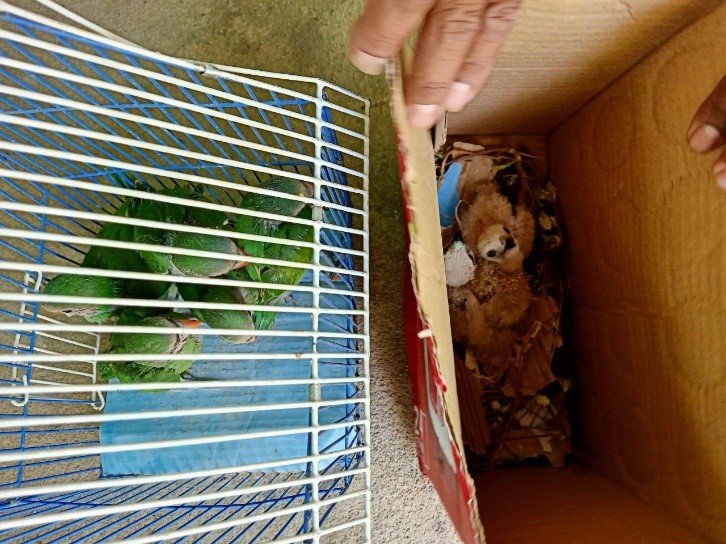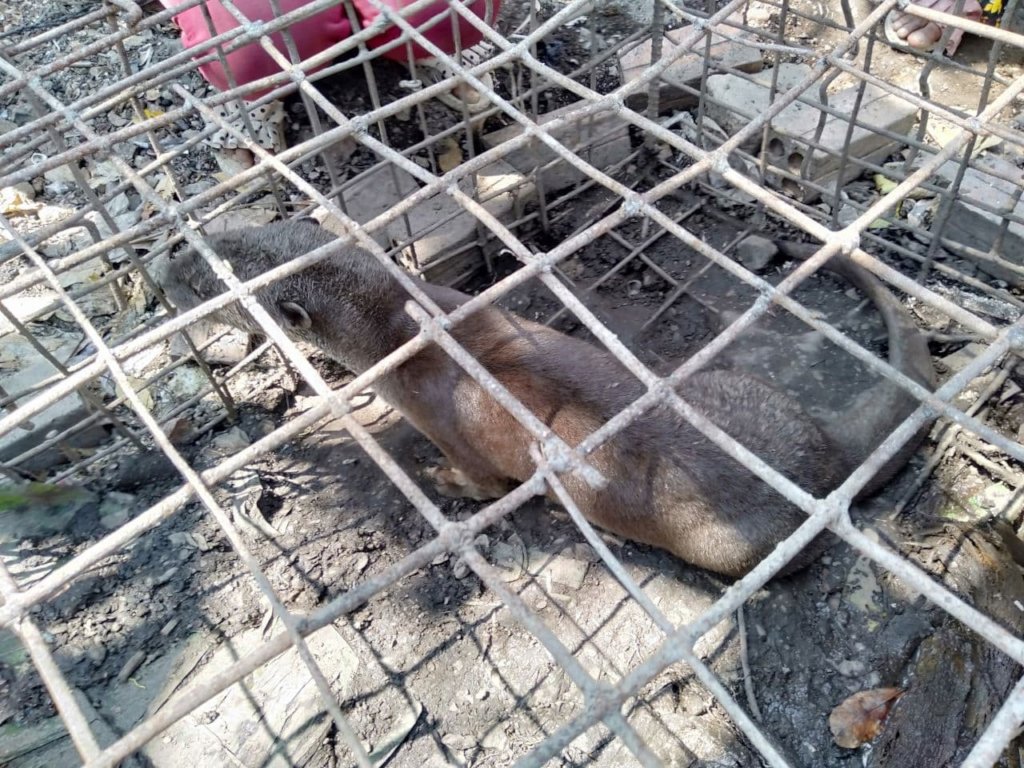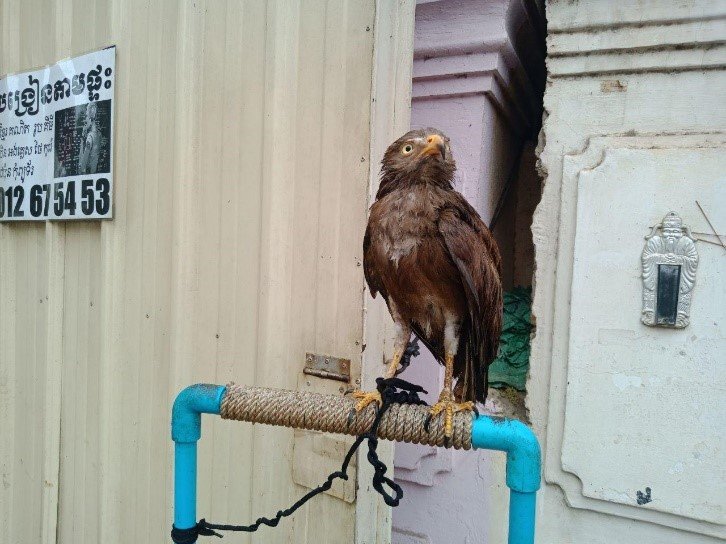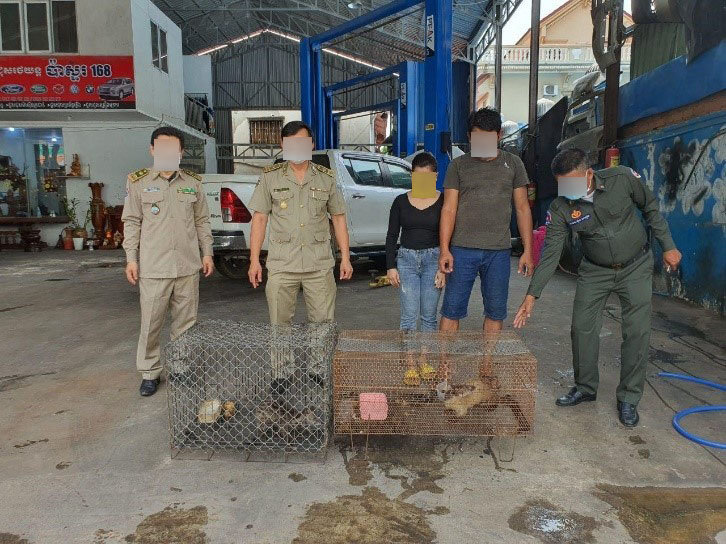By Elisabeth Gish | Project Leader
In Cambodia, it is illegal to keep or sell any terrestrial native wildlife species as a pet – they are all protected under the Forestry Law. Recently the Wildlife Rapid Rescue Team has been busy rescuing wild animals from the pet trade, saving them from a lifetime of cramped conditions without proper care. Many of the Team’s rescues during this period were based on reports made by concerned citizens to our Wildlife Crime Hotline. Your generous donations help provide funds the Team needs to travel far and wide across the country responding to the many reports it receives, rescuing animals and releasing them into the wild or bringing them to Phnom Tamao Wildlife Rescue Centre if they need rehabilitation.
The Team rescued a total of seven leopard cats between March and May 2021. In early March, a foreigner living in Rattanakiri Province in Northeast Cambodia called the Hotline to report that he had convinced a local villager to pass our Team two baby leopard cats. A few days later the team was called to collect another pair of leopard cat kittens found abandoned near a forest fire in neighboring Mondulkiri Province by a Phnom Penh resident who rescued them while he was on holiday there. In mid-May, the Team collected another three leopard cats plus two Oriental pied hornbills and one crested serpent eagle from a conservation organization that had previously rescued them. All the animals were brought to Phnom Tamao where they will receive proper care. The kittens were young enough to still require bottle feeding and went to the special Nursery section to be hand-raised.
Raptors are being rescued in increasing numbers lately – pointing to a concerning new trend in Cambodia to keep birds of prey as pets. From May-June, a total of 19 raptors were confiscated, in addition to 33 birds of other species that are bought and sold in the pet trade. In March, the Team received information about birds being sold near Phnom Penh’s Central Market and confiscated three black kites, four black-shouldered kites and 22 red-breasted parakeets from a vendor. In April, the Team confiscated two more black-shouldered kites and five blossom-headed parakeets from a street seller in Phnom Penh (all young chicks), and then rescued a rufous-winged buzzard that was reported as being illegally kept as a pet in a Phnom Penh restaurant; two more blossom-headed parakeets were discovered when the restaurant was inspected. In May, the team caught a street seller in front of Phnom Penh airport with four brahminy kites and four white-vented hill mynas. Following reports to our Hotline’s Facebook page, the Team also confiscated a black-shouldered kite being kept as a pet on a tuk-tuk (an open carriage pulled by a motorcycle) by its driver in Phnom Penh, and in Kampot Province seized three rufous-winged buzzards from a pet-shop and a changeable hawk eagle being kept as a pet.
Wild birds become easily stressed and dehydrated when kept in captivity in inappropriate conditions as they usually are in the pet trade - this causes many of them to die, even after they are rescued. All of the birds rescued by the Team were brought to Phnom Tamao to be hand-raised and/or rehabilitated in large enclosures by keepers who know each species’ special requirements, which gives each of them the greatest chance of survival, recovery and eventual release into the wild.
Other animals rescued during this period and brought to Phnom Tamao included: an otter being kept in a small cage in a village in Kampong Chhnang Province on dry ground with no water in which to swim; two water monitor lizards confiscated from a pet shop in Phnom Penh; a great hornbill that was being kept in a private residence and was reported to the Hotline; a common palm civet and a yellow-throated marten that a member of the Team noticed were being kept as pets in small cages at a garage in Phnom Penh; and an injured jackal, which appeared to have been hit by a car, that was found along the roadside in Kratie by villagers and taken by the Team to Phnom Tamao for veterinary care.
Thank you for supporting these rescues, helping to ensure fewer wild animals suffer as pets and more are freed to live in well-protected habitat, where they belong.
Project reports on GlobalGiving are posted directly to globalgiving.org by Project Leaders as they are completed, generally every 3-4 months. To protect the integrity of these documents, GlobalGiving does not alter them; therefore you may find some language or formatting issues.
If you donate to this project or have donated to this project, you can receive an email when this project posts a report. You can also subscribe for reports without donating.
Support this important cause by creating a personalized fundraising page.
Start a Fundraiser